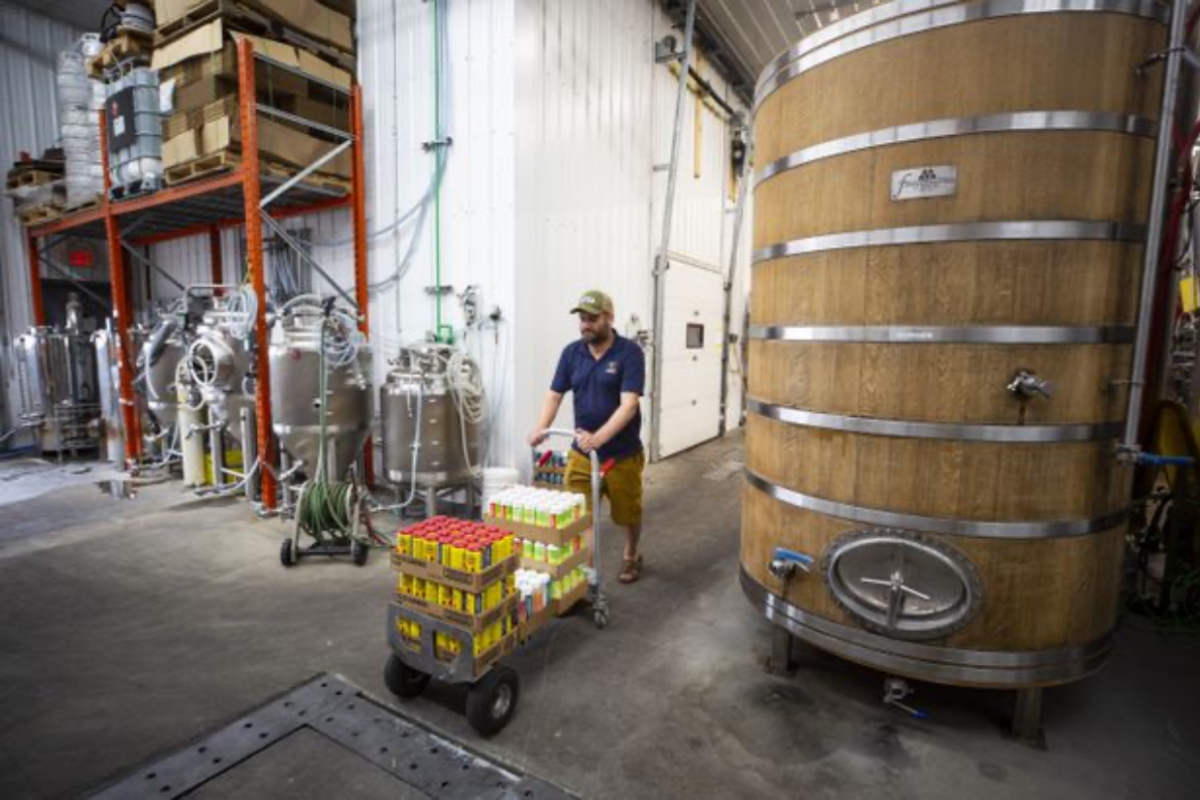
Located in Lacombe, Alberta, Blindman Brewing is using carbon capture technology to reduce its emissions and reduce its costs on carbon dioxide. Kirk Zembal, founder of the brewers, says the technology will pay for itself in just a few years and collectively with other companies, can make a significant impact on the environment.
During the fermentation process, it is known that CO2 is produced and must be emitted, typically vented out of the tank. According to an interview Zembal did with The Globe and Mail, he invested $60,000 to purchase bulk CO2. When it comes to the big giants, they have already figured out how to capture CO2, but with approx. 10,000 craft breweries in North America, it will likely have to be done on a smaller scale. Zembal estimates around 100 metric tons [is produced by Blindman], which isn’t altogether a huge amount, when you add up all the breweries across the country, it will certainly have an impact.
The carbon capture technology hooks up to a brewery fermentation tank and then the CO2 that’s being vented is brought into a manifold, compressed, cleaned up through some scrubbers to get rid of any impurities, and then it’s stored in big dewar tanks. And then, when it is time to carbonate the beer, the brewery takes that CO2 and injects it into the brite tanks.
Blindman has also teamed up with the Alberta Machine Intelligence Institute to potentially develop a machine that helps generate some data and some decisions around our CO2 production during fermentation.
Being one of the winners of the Emissions Reduction Alberta’s food farming and forestry challenge, Blindman received $100,000 for a total project that will be about $200,000.
“In the short term, this piece of equipment will cost $140,000 or $150,000, and if you purchase $60,000 of CO2 in a year, it’s paid for in 2½ to three years, which is a good return,” said Zembal.
“It’s one of those win-win-win situations. If you have an emission reduction product that is financially viable, not outrageously complex to implement and reduces CO2 emissions, those are the ones that everybody should be jumping on. Our brewery was founded on the ethos of doing better and providing a choice. If you’re drinking beer, you have a choice of drinking a beer from a brewery that’s cutting down their impact. Folks that drink beer care about the world, and we care about our world. We’re trying to do what we can.”
Photo courtesy of The Globe and Mail.
